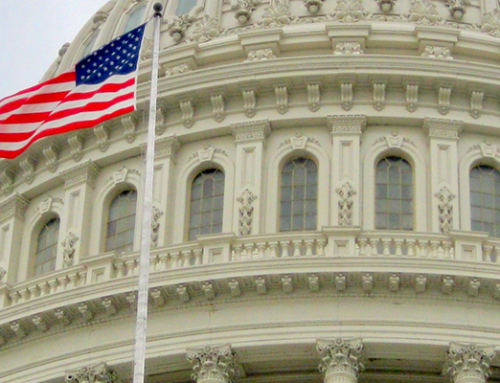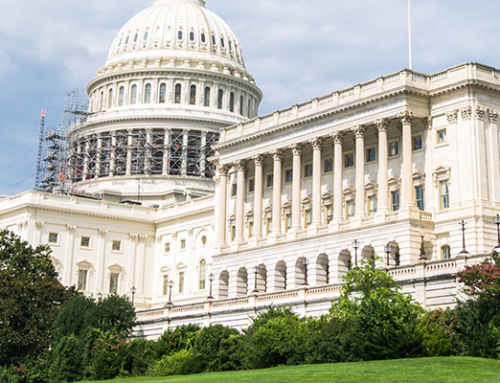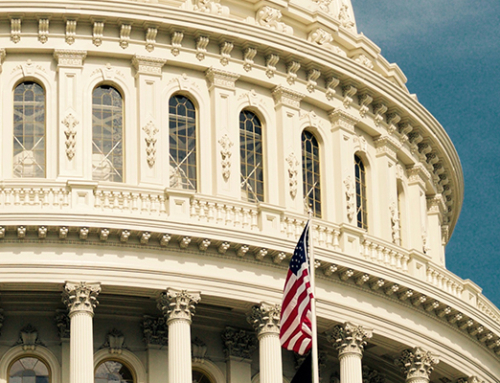On December 19, 2019 Congress enacted the “Further Consolidated Appropriations Act, 2020”HR 1865”. The Act includes a 7 year extension of TRIA. President Trump signed the Act into law on December 20, 2019.
UWC has long supported TRIA in recognition that 1) it is difficult to determine an appropriate risk factor for terrorism events; 2) the impact of terrorism can be so great as to deplete any reserves that may be available to cover the costs of such events; and 3) self-insured employers for workers’ compensation and insurance plans may not be able to exclude coverage for injuries or illnesses even if they may have been due in whole or in part to acts of terrorism that were well beyond the control of the employer.
A federal backstop under these circumstances is needed.
We have supported the efforts by the insurance industry to secure extension of this program. As the terms of the extension show (see below) there will be continued evaluation of the availability and affordability of terrorism risk insurance during the extension and the Comptroller General of the United States shall conduct a study and report on Cyber Terrorism for submission to the Committee on Financial Services of the House of Representatives and the Committee on Banking, Housing, and Urban Affairs of the Senate.
Title V of Division I of the bill generally provides a 7 year extension of the provisions of the Terrorism Risk Insurance Act with additional specifics as follows:
TITLE V—TERRORISM RISK INSURANCE PROGRAM EXTENSION
SHORT TITLE
Sec. 501.
This title may be cited as the “Terrorism Risk Insurance Program Reauthorization Act of 2019”.
7-YEAR EXTENSION OF TERRORISM RISK INSURANCE PROGRAM
Sec. 502. (a) Termination date.—Section 108(a) of the Terrorism Risk Insurance Act of 2002 (15 U.S.C. 6701 note) is amended by striking “2020” and inserting “2027”.
(b) Timing of mandatory recoupment.—Section 103(e)(7)(E)(i) of the Terrorism Risk Insurance Act of 2002 (15 U.S.C. 6701 note) is amended—
(1) in subclause (I)—
(A) by striking “2017” and inserting “2022”; and
(B) by striking “2019” and inserting “2024”;
(2) in subclause (II)—
(A) by striking “2018” and inserting “2023”;
(B) by striking “2024” and inserting “2029”; and
(C) by striking “2019” and inserting “2024”; and
(3) in subclause (III)—
(A) by striking “2024” and inserting “2029”; and
(B) by striking “2019” and inserting “2024”.
(c) Ongoing reports regarding market conditions for terrorism risk insurance.—Paragraph (2) of section 104(h) of the Terrorism Risk Insurance Act of 2002 (15 U.S.C. 6701 note) is amended—
(1) by redesignating subparagraphs (B) through (E) as subparagraphs (C) through (F), respectively; and
(2) by inserting after subparagraph (A) the following new subparagraph:
“(B) an evaluation of the availability and affordability of terrorism risk insurance, which shall include an analysis of such availability and affordability specifically for places of worship;”.
(d) Study and report on cyber terrorism.—Not later than the expiration of the 180-day period beginning on the date of the enactment of this Act, the Comptroller General of the United States shall conduct a study and report to the Committee on Financial Services of the House of Representatives and the Committee on Banking, Housing, and Urban Affairs of the Senate, which shall—
(1) analyze and address—
(A) overall vulnerabilities and potential costs of cyber attacks to the United States public and private infrastructure that could result in physical or digital damage;
(B) whether State-defined cyber liability under a property and casualty line of insurance is adequate coverage for an act of cyber terrorism;
(C) whether such risks can be adequately priced by the private market; and
(D) whether the current risk-share system under the Terrorism Risk Insurance Act of 2002 (15 U.S.C. 6701 note) is appropriate for a cyber terrorism event; and
(2) set forth recommendations on how Congress could amend the Terrorism Risk Insurance Act of 2002 (15 U.S.C. 6701 note) to meet the next generation of cyber threats.






